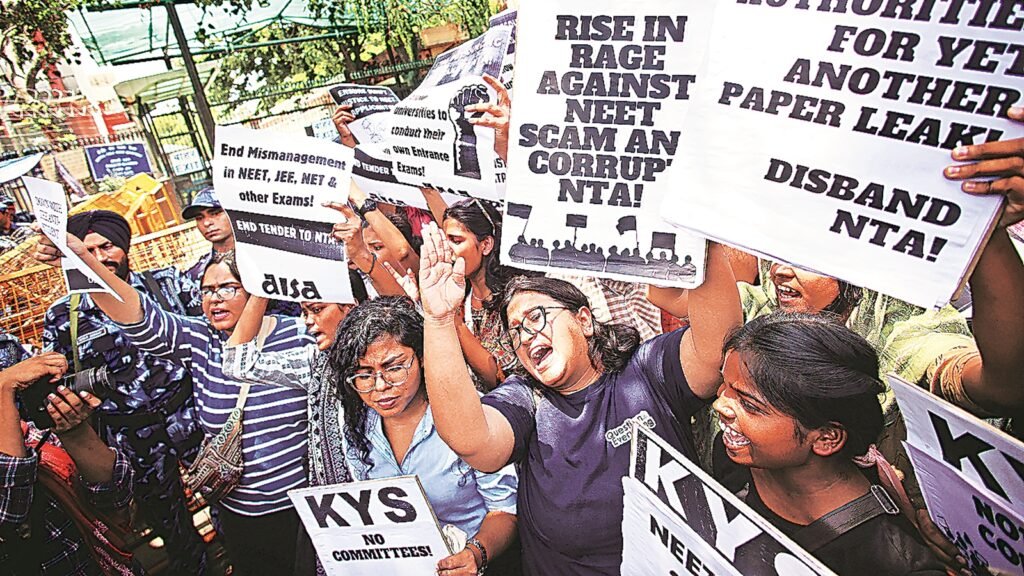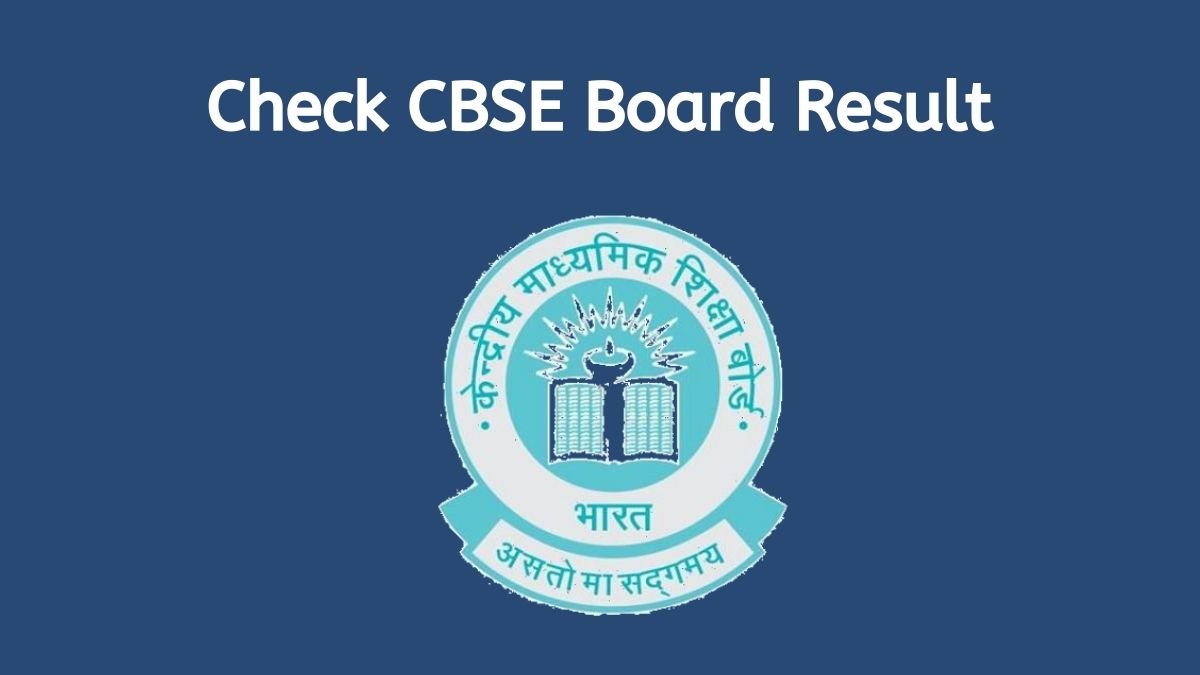Student Protests of 2024 : In 2024, the landscape of student protests in India has been notably shaped by various pivotal issues, primarily focusing on the irregularities surrounding the National Eligibility cum Entrance Test (NEET). Following allegations of discrepancies in examination processes, a wave of discontent has surged amongst students, prompting larger mobilizations and questioning the integrity of the educational system. These protests are not isolated incidents but rather part of a broader narrative of student activism that has taken root, reflecting a growing sense of urgency among youth for accountability in educational practices.
The socio-political environment of 2024 has catalyzed this rise in student activism. Economic challenges, limited job opportunities, and perceived governmental negligence towards the concerns of students have compounded the frustrations of the youth. Many students view these protests as a necessary response to long-standing systemic issues that have affected their academic and career aspirations. The NEET irregularities have served as a flashpoint, igniting protests that echo deeper societal grievances and demand reform in entrance examinations and educational policies.

Furthermore, the role of social media cannot be understated in the context of these movements. Platforms such as Twitter, Instagram, and Facebook have become instrumental for students, allowing them to share their experiences, organize demonstrations, and galvanize support across the nation. The immediacy and reach of social media enable students not only to articulate their discontent but also to connect with like-minded peers, fostering a sense of solidarity and shared purpose. This digital mobilization has significantly expanded the scope of protests, leading to increased participation and visibility of student issues.
Ultimately, the protests of 2024 signify a pivotal shift in student politics in India. The grievances over the NEET examination irregularities, coupled with broader socio-political factors, have mobilized students into collective action, reflecting their demand for accountability and reform in the educational sector.
NEET Irregularities and Student Response : Student Protests of 2024
The National Eligibility cum Entrance Test (NEET) has long been a critical gateway for aspiring medical students in India. In 2024, various irregularities emerged during the examination process, raising substantial concerns among students seeking medical admissions. These irregularities ranged from discrepancies in the examination papers to incidents of misconduct during the conduct of the test. Reports revealed instances of mismatched questions, unauthorized aids being used, and discrepancies in answer key releases, leading to widespread confusion and anxiety among candidates. Such issues not only jeopardized the integrity of the examination but also threatened the academic aspirations and futures of countless students.
The NEET irregularities spurred significant student unrest across the nation, prompting the formation of coalitions aimed at seeking justice and accountability. The discontent among students culminated in a series of organized protests, including sit-ins and rallies in various cities. Students utilized social media as a powerful tool to amplify their voices, launching online campaigns that attracted attention to the issues at hand. Hashtags related to NEET irregularities trended on platforms like Twitter and Instagram, rallying thousands of supporters who joined the cause. These collective efforts underscored the determination of students to assert their rights and push for systemic change in the examination process.
The response from educational authorities and the government was a crucial aspect of this scenario. Initially, the authorities issued statements promising to investigate the reported irregularities, creating a facade of concern aimed at pacifying the aggrieved students. However, many students felt that these measures were inadequate and failed to address the root causes of their grievances. The lack of tangible actions led to further demonstrations, revealing a deep-seated distrust toward regulatory bodies. In light of these events, the NEET irregularities of 2024 have not only highlighted issues within the examination system but also exemplified the power of student activism in advocating for necessary reforms.
The UPPSC Exam Controversy
The UPPSC (Uttar Pradesh Public Service Commission) exam controversy has emerged as a catalyzing force for widespread protests in the state, driven by allegations of irregularities and mismanagement in the examination process. Central to the discontent is the perception of bias and favoritism that many candidates believe undermines the meritocratic principles that should uphold public service examinations. Reports surfaced outlining concerns about discrepancies in the examination papers, irregular evaluation processes, and the selection of candidates based on connections rather than capability. Such claims have intensified feelings of frustration among students and aspirants, particularly those who have invested considerable time and resources into preparing for these crucial assessments.
The students’ protests have been characterized by large-scale mobilization. Thousands of participants, including job aspirants and concerned citizens, united in rallies across various cities in Uttar Pradesh. This collective action has not only brought attention to the alleged injustices surrounding the UPPSC exams but has also highlighted the broader issue of transparency in recruitment processes for public service positions. The protests were primarily organized through social media platforms, where students shared information about meeting points, demands, and strategies to amplify their voice. This digital mobilization played a vital role in ensuring that the message reached beyond local limitations, garnering support from various regions.
Implications and Future of Student Activism in India
The significant student protests of 2024 have unveiled a broader paradigm shift within the landscape of student activism in India. The immediate outcomes of these movements include heightened awareness around critical issues such as NEET irregularities and UPPSC exam controversies. This awakening among students is not merely a reactionary impulse; it signals a deeper engagement with socio-political matters that could reshape future activism in the country. Government responses to these protests have varied, with some regions witnessing policy changes aimed at improving examination protocols and enhancing transparency.
Policy changes resulting from these protests have implications that extend beyond the immediate grievances. The government’s adoption of more rigorous protocols can be seen as a recognition of the power that collective student voices wield. This recognition may lead to a more inclusive dialogue between policymakers and student representatives, opening avenues for collaboration that have previously been ignored. Additionally, the empathy shown towards student concerns has the potential to foster a culture where active engagement in governance is encouraged among the youth.
However, the future of student activism is not merely contingent upon governmental responses; it is poised to evolve with the advent of digital platforms. The ability of students to mobilize and communicate efficiently through social media has transformed the dynamics of activism. This digitization allows for a more rapid response to grievances and greater outreach. As seen in 2024, the youth’s engagement through platforms like Twitter and Instagram has revolutionized how protests are organized and executed, suggesting that future activism will likely see increased participation and mobilization from students across India.
Ultimately, the protests of 2024 stand as a testament to the potential of student activism in driving socio-political change. They serve as a reminder of the significance of political engagement among the youth, hinting at a promising future where student bodies play a crucial role in shaping policy and governance in India.




